Here are the Top 10 Katalon Alternatives. Katalon Studio is a widely used automated testing software for businesses, but there are several other powerful alternatives available in the market. In this article, we will explore the top 10 Katalon alternatives and similar software for automated testing. Each of these tools offers unique features and capabilities to meet the diverse testing needs of businesses.
- Robonito
- Testsigma
- Lambdatest
- Cypress
- Sauce labs
- BrowserStack
- Smartbear
- Selenium
- Appium
- TestProject
1. Robonito
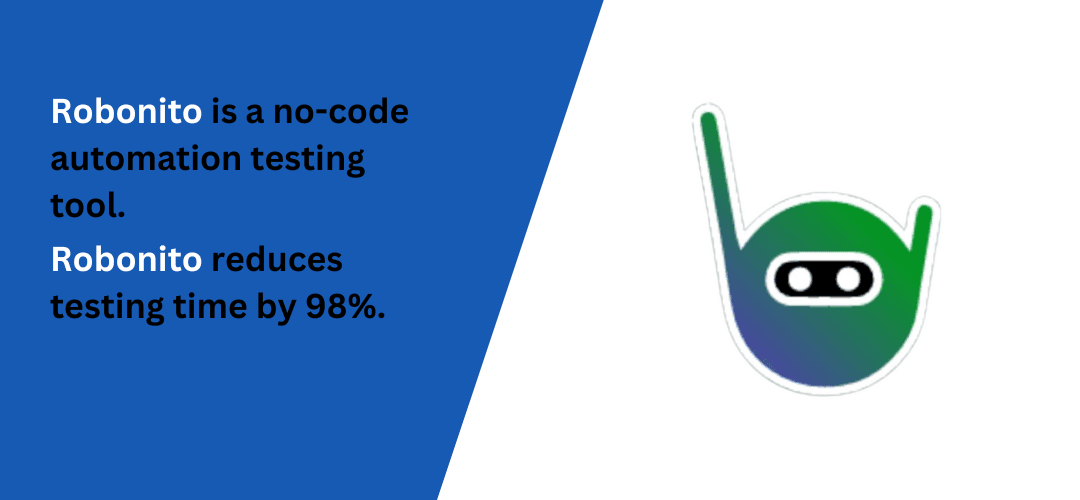
Robonito is a cutting-edge no-code automation testing tool. Robonito reduces testing time by 98%. With its user-friendly interface and powerful capabilities, Robonito streamlines the testing process, allowing QA teams to achieve remarkable efficiency gains. By eliminating the need for manual coding, Robonito empowers testers of all levels to create and execute automated test cases effortlessly.
Key Features of Robonito
Drastically Reduced Testing Time: Robonito boasts an impressive reduction of up to 98% in testing time. By automating repetitive tasks and offering seamless test case execution, teams can focus on critical aspects of testing, ensuring faster and more reliable software delivery.
Data Import from Multiple Sources: With Robonito, expanding test case coverage is a breeze. The tool allows easy data import from various sources, including Excel, API, and JSON. This enables testers to work with real-world data scenarios, enhancing the comprehensiveness of test cases.
User-Friendly Test Case Recording: Robonito simplifies the test case creation process. By utilizing its intuitive interface, testers can easily record test cases by performing actions in the application under test. This no-code approach saves time and effort, making test case creation accessible to non-technical team members.
Organized Test Suites: Robonito introduces the concept of workspaces, allowing users to organize test cases into multiple test suites. This feature is particularly useful when working on different projects, providing a structured approach to managing and executing tests.
Visual Flows: With Robonito, users can construct and modify test case steps visually, eliminating the need for manual code writing. This visual approach not only accelerates test case development but also makes it easier for team members with limited coding experience to contribute to the automation process.
2. Testsigma
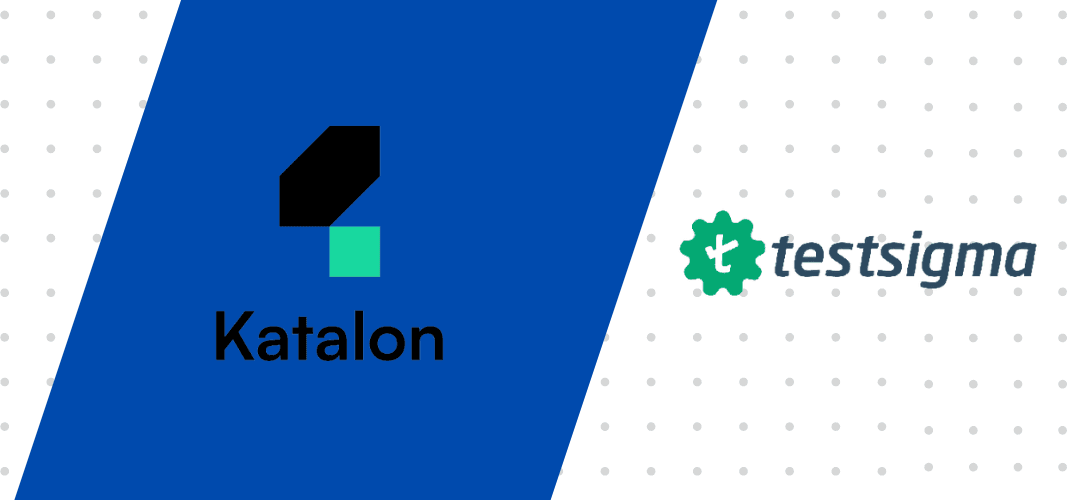
When ranking the top alternatives to Katalon, our priority is to feature the latest and most reliable tool at the top of the list. Testsigma emerges as a fresh contender in the automation testing domain, catering to mobile testing, website testing, and various other application testing needs.
Distinguished by its strong foundation in machine learning, Testsigma offers developers precise control over testing outcomes, ensuring efficient and accurate results. An outstanding advantage of Testsigma lies in its language independence, enabling even non-technical developers to conduct application testing with ease and effectiveness.
Moreover, Testsigma facilitates the option to write custom codes, allowing developers to optimize the automation system as per their specific requirements. This level of flexibility fosters a user-friendly environment, promoting seamless collaboration among team members.
To further enhance usability and analysis, Testsigma presents testing results in graphical formats, minimizing the time spent on troubleshooting application-related issues. This visual representation aids in swift issue resolution, contributing to an overall efficient testing process.
Key Features of Testsigma:
Streamlined Test Case Management: Testsigma simplifies the management of each test case, ensuring that both technical and non-technical users can effortlessly execute tasks. The ability to organize test cases into folders or modules enables easy tracking of tested applications at any given time.
Seamless Automation Process: Testsigma's automation process is exceptionally smooth, as it eliminates the need for coding knowledge. Users can leverage the built-in libraries from Testsigma's extensive database for seamless test automation.
Reliable Test Reports: Testsigma delivers test results with graphical representations, including logs, charts, and screenshots. These comprehensive reports aid developers in promptly identifying and addressing bugs.
Integration Capabilities: Testsigma seamlessly integrates with popular third-party tools like Jenkins, JIRA, and Selenium, enhancing collaboration and expanding testing capabilities.
Cloud-Based Platform: Testsigma operates on a cloud-based infrastructure, enabling users to access their applications from remote locations with ease and convenience.
3. Lambdatest
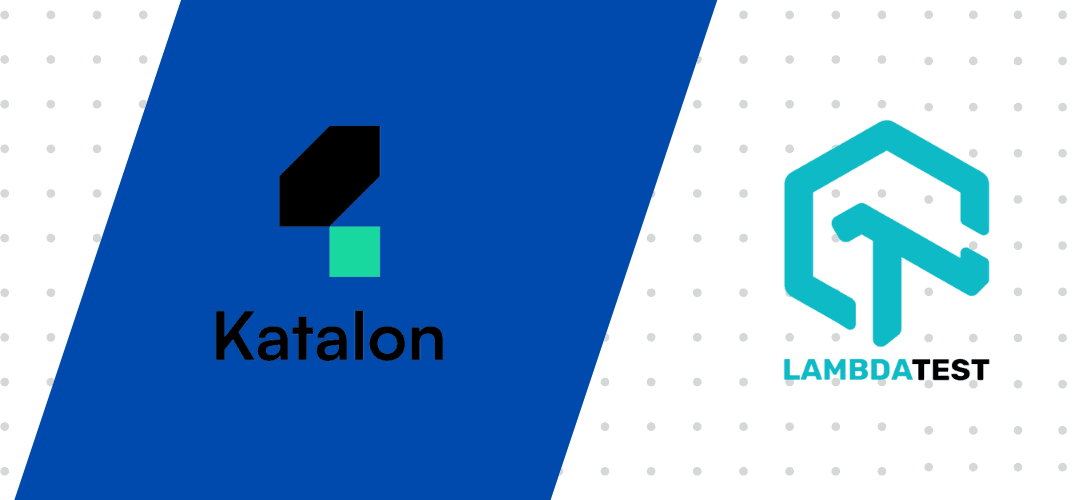
Lambdatest is a cloud-based platform that offers an extensive suite of tools for conducting both manual and automated tests on websites and mobile applications.
With Lambdatest, developers can effortlessly manage the entire test case infrastructure and execute tests on various current browsers with ease.
The platform's broad browser compatibility, including Chrome, Safari, Firefox, Internet Explorer, and more, makes it a preferred choice among developers for testing diverse website applications.
Moreover, Lambdatest facilitates seamless collaboration by allowing users to share test results and collectively brainstorm swift solutions to identified issues. This collaborative feature enhances team efficiency and problem-solving capabilities.
Key Features of Lambdatest:
Multi-browser support: Lambdatest facilitates testing website applications on a wide range of browsers, providing developers with the flexibility to choose from options like Chrome, Internet Explorer, Firefox, and more.
Screenshot testing: The platform offers detailed regression analysis through screenshots of test results, enabling users to thoroughly assess the application's bugs and issues.
Live testing: Lambdatest allows live testing, empowering developers to compare test results with the existing website in real-time and efficiently identify solutions.
API testing: Lambdatest includes an API feature that enables programmers to conduct continuous testing of their applications, helping to detect and address any ongoing problems during the runtime.
Various integration techniques: The platform supports seamless integration with various third-party tools, offering users a wide array of options to select the most suitable and user-friendly tools for their needs.
Versatile compatibility: In addition to supporting multiple browsers, Lambdatest also accommodates file formats such as .apk, .app, and .zip for testing applications.
4. Cypress
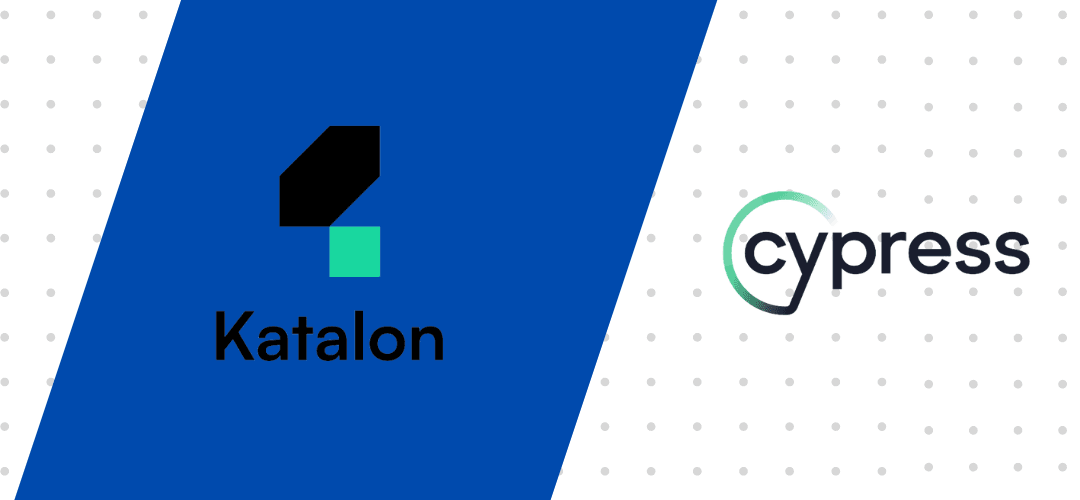
Cypress is a powerful frontend testing automation tool designed for testing anything that runs in browsers. One of its significant advantages is an intuitive and readable interface, making it user-friendly. It offers a plethora of useful features, such as capturing screenshots at each step of debugging and providing a button to obtain web elements quickly. Another standout feature is the use of real browsers for running tests, ensuring that the results closely mimic the real user's experience, unlike simulators.
Cypress provides developers with control over all network requests going in and out of the application, enabling simulations of scenarios like server errors. Additionally, it offers testing of element visibility, which marks tests as failed if they attempt to interact with elements that are not displayed or obscured by other elements. However, Cypress has some limitations. It supports only JavaScript for writing tests, which may restrict users who prefer other programming languages. Furthermore, the tool does not allow simultaneous testing of multiple tabs in browsers or multiple browsers concurrently, potentially impacting testing efficiency. Additionally, during the same test, Cypress does not permit visiting two different super domains simultaneously, which might be a limitation in certain testing scenarios.
Key features of Cypress
Intuitive and Readable Interface: Cypress offers an easy-to-understand and user-friendly interface, making test creation and debugging a smooth process. Useful features like screenshots at each step of debugging and quick access to web elements enhance the testing experience.
Real Browsers for Testing: Unlike simulators, Cypress uses real browsers to execute tests, ensuring that the results mirror the real user's experience closely. This enhances the accuracy and reliability of the testing process.
Control over Network Requests: Cypress provides developers with control over all network requests made by the application. This capability is valuable for simulating scenarios, such as testing the behavior when a server encounters an error.
Testing Visibility of Elements: Cypress allows testing the visibility of elements, ensuring that tests fail if certain elements are not displayed or are obscured by other elements. This feature ensures comprehensive and precise testing of user interactions.
5. Sauce labs
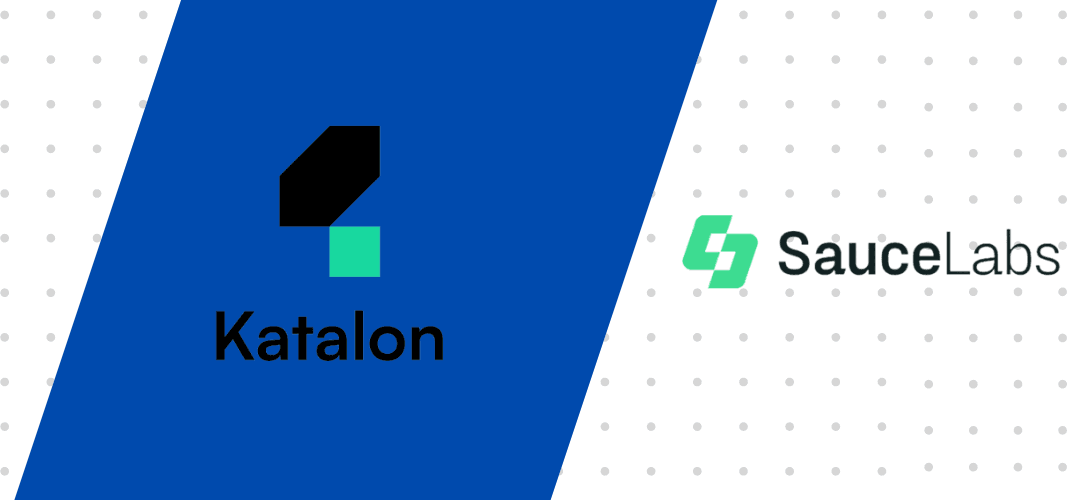
Sauce Labs is a cloud-based application testing tool that offers fast and efficient test cases for both websites and mobile applications.
One significant benefit of using Sauce Labs is its extensive platform support, including Android, Windows, and iOS. This enables users to perform real-time testing on various devices like mobile phones, desktops, and multiple web browsers.
Furthermore, Sauce Labs provides the flexibility to run both manual and automated tests. For automation, developers have access to a wide range of third-party tools like Appium, Selenium, or JavaScript, allowing them to write code and create custom test cases tailored to their specific needs.
Key features of Sauce Labs
Cross-browser testing: Saucelabs supports compatibility with various browsers, including legacy ones, enabling developers to test their applications thoroughly for browser durability.
Automated testing: Saucelabs provides multiple options for writing automation test cases using third-party platforms like Selenium, Appium, or JavaScript, offering flexibility and ease of implementation.
Manual testing: With real-time device testing capabilities, Saucelabs allows users to perform manual tests on laptops, desktops, and mobile phones, making it easier to identify and fix issues without relying on automation.
Continuous integration: Saucelabs offers seamless integration with top-notch tools like Jenkins or Bamboo, enabling improved testing efficiency and streamlined workflows for development teams.
6. BrowserStack

Are you in need of a comprehensive testing tool for website applications? Look no further than BrowserStack! This versatile tool provides all the necessary features and compatibility for seamless website testing across various platforms.
With BrowserStack's robust infrastructure, developers can rest assured that their websites will be accessible without any compatibility issues. The tool boasts compatibility with nearly 2000 browsers and devices, ranging from smartphones and tablets to desktops and laptops, including popular options like Chrome, Firefox, and Internet Explorer.
In summary, BrowserStack can effortlessly run your website on any medium, ensuring a smooth testing experience without any system resistance.
Key Features of Browserstack Auto Testing
Automated Testing: Browserstack offers two types of automated testing - performance testing and parallel testing. This allows for efficient and faster test results, saving valuable time during the testing process.
Live Testing: With Browserstack's live testing feature, you can interact with the application interface, sending data and commanding the interface to function accordingly. This capability enables you to observe and identify specific changes and behaviors within your application in real-time.
7. Smartbear
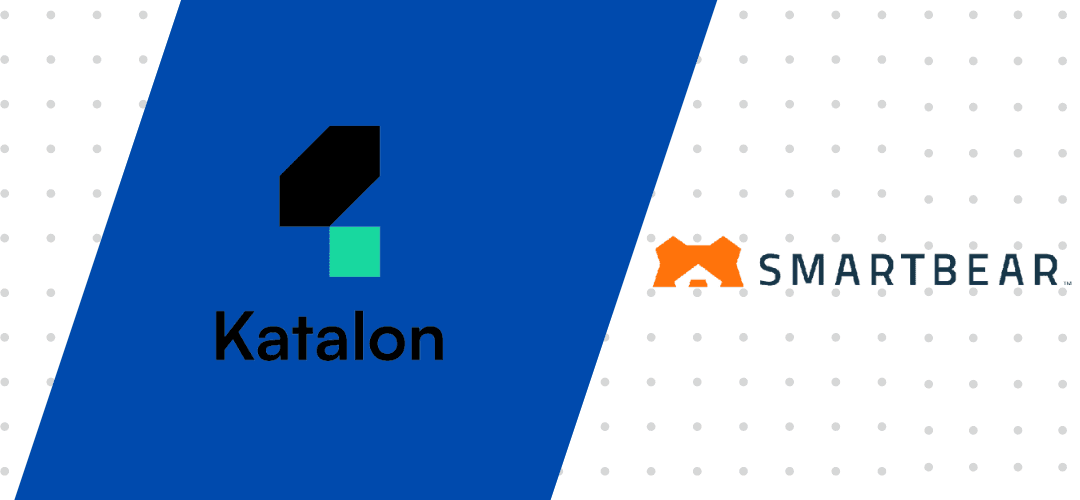
SmartBear is a software company that provides a comprehensive range of software development and testing services. Within their testing tool portfolio, they offer TestComplete, CrossBrowserTesting, and SoapUI Pro, empowering users to efficiently accomplish their testing tasks.
TestComplete is a versatile tool that allows testing of both websites and mobile applications. It also offers the flexibility of customizing test cases using various programming languages.
CrossBrowserTesting is a specialized tool designed for testing website applications across different platforms, operating systems, and browsers, ensuring the maturity and compatibility of the tested websites.
SoapUI Pro is another essential tool offered by SmartBear, specifically tailored for testing two common architectural styles used in website applications - SOAP and RestAPIs. This helps developers thoroughly validate the functionality and performance of these web services.
Key Features of Smartbear Test Automation
Test Complete, BugSnag, and Load Ninja: Smartbear's test automation feature includes powerful tools like Test Complete, BugSnag, and Load Ninja, which facilitate regression and load testing for mobile and website applications.
Cross-Browser Testing: Smartbear offers cross-browser testing to ensure compatibility with various operating systems and browsers, allowing developers to test their applications on different platforms.
API and Visual Testing: The combination of API and visual testing provides a comprehensive toolset to simulate accurate results for tested applications and adapt them accordingly.
Performance Monitoring: Smartbear's API settings include a feature that enables users to monitor the application's performance in real-time, allowing for quick resolution of any detected bugs.
Integration Techniques: To enhance testing efficiency, Smartbear supports various third-party integration tools such as VisualStudio, Jenkins, and Travis CI, offering a total of 27 integration options.
8. Selenium

Selenium is a suite of web testing tools that combine multiple software tools geared for automation testing. It is open-source and works as an API for browser automation. Known as a go-to for web testing, Selenium is a leader in the QA testing realm.
Selenium makes it possible for test teams to create customized test automation scenarios that cater to various browsers and scripting languages. It offers autocomplete functions, single-click recording, and playback and has test choices scaled to various ability levels. Selenium also has some excellent advantages as a test automation tool.
Key Features of Selenium Testing Tool
Open-source and free: Selenium is an open-source testing tool, making it freely available for use, which is a significant advantage for organizations looking for cost-effective solutions.
Support for multiple programming languages: Selenium supports multiple programming languages like Java, Python, C#, Ruby, and more, allowing QA teams to work with their preferred language.
Cross-browser testing: With Selenium, users can conduct cross-browser testing, ensuring compatibility and consistency across different web browsers.
Functional testing on various operating systems: Selenium enables functional testing on a wide range of operating systems, including Windows, Mac, iOS, Linux, and Android, ensuring comprehensive test coverage.
Compatibility with most browsers: Selenium is compatible with popular web browsers such as Chrome, Safari, Mozilla Firefox, and Opera, offering flexibility in choosing the browser for testing.
Integration with test frameworks: Selenium can be seamlessly integrated with popular test frameworks like NUnit, TestNG, and JUnit, allowing efficient test case management and generating comprehensive test reports.
9. Appium
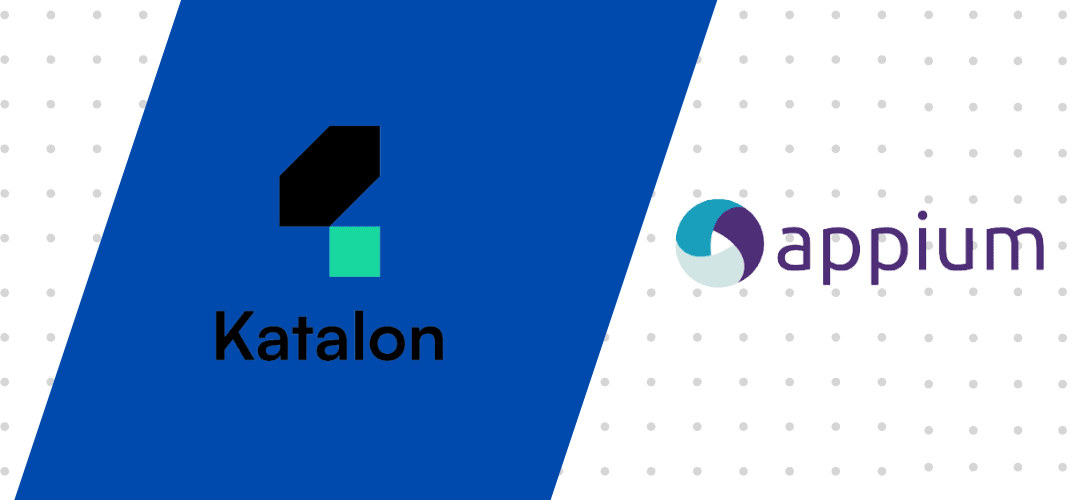
Appium is a highly regarded open-source app testing tool that boasts a user-friendly and powerful GUI while offering robust support for most Java Android platforms. What sets Appium apart is its simplicity, which empowers users to conveniently test and debug their apps from anywhere with an Internet connection, without requiring any special equipment.
One of Appium's core principles is code reusability across different platforms. By eliminating the need for an SDK or recompilation, Appium enables the testing of native apps effortlessly. It provides standard automation APIs that work seamlessly on all platforms, allowing developers to write tests using their preferred development tools, be it Javascript, C#, Ruby, Python, or PHP.
Key features of Appium for Automation Testing
Cross-platform support: Appium allows automation testing on various platforms, including Windows, iOS, and Android. Unlike some other tools, such as Selendroid, which only support testing on Android, Appium offers a wider range of platform compatibility.
Easy setup: Appium's setup process is highly user-friendly and straightforward, making it easy for testers and developers to get started with automation testing quickly.
Based on Selenium WebDriver API: Appium is built on the Selenium WebDriver API, which utilizes a client-server protocol known as JSON Wire Protocol. This integration enhances its capabilities and ensures seamless automation testing.
Multi-language support: One of Appium's strengths lies in its support for multiple programming languages. Testers and developers can choose from a range of languages, including Ruby, Javascript, C#, Python, and Java, providing them with the flexibility to work with their preferred language.
10. TestProject
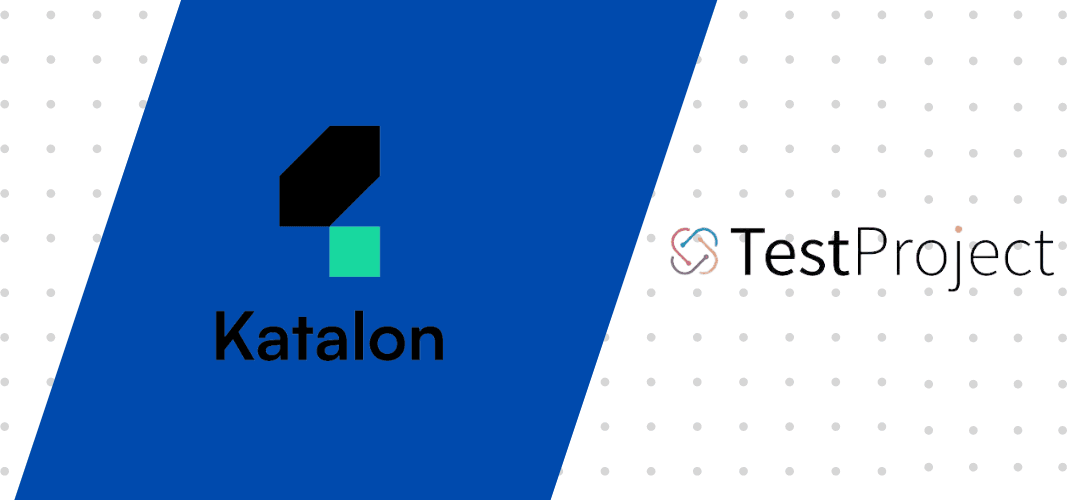
TestProject is a revolutionary automation platform designed for Web, iOS, and Android Applications, offering the distinction of being the world's first free cloud-based solution. Embracing a community-powered approach, this platform empowers testers and developers to efficiently carry out their tasks. Furthermore, TestProject seamlessly integrates with popular open-source frameworks like Selenium and Appium, ensuring top-notch quality in testing.
With its advanced codeless capabilities and compatibility with Selenium's open-source SDK, TestProject delivers a high-quality automation experience, irrespective of users' skill levels. By addressing maintenance and setup challenges, it enables Selenium and Appium to leverage AI-powered self-healing technology. In addition to a valuable addon library and comprehensive test reports, TestProject seamlessly integrates with CI/CD pipelines, facilitates global team collaboration, and remarkably, all these benefits are offered at no cost.
Tool
Key Features
1
Robonito
- Drastically Reduced Testing Time (up to 98%)
- Data Import from Multiple Sources (Excel, API, JSON)
- User-Friendly Test Case Recording
- Organized Test Suites (Workspaces)
- Visual Flows for Test Case Construction
2
Testsigma
- Streamlined Test Case Management
- Seamless Automation Process
- Reliable Test Reports in Graphical Formats
- Integration Capabilities with Jenkins, JIRA, Selenium
- Cloud-Based Platform for Remote Accessibility
3
Lambdatest
- Multi-browser support
- Screenshot testing for detailed regression analysis
- Live testing for real-time comparison and issue identification
- API testing for continuous application testing
- Various integration techniques and versatile compatibility
4
Cypress
- Intuitive and Readable Interface
- Real Browsers for Testing
- Control over Network Requests
- Testing Visibility of Elements
5
Sauce Labs
- Cross-browser testing
- Automated and Manual testing options
- Extensive platform support (Android, Windows, iOS)
- Seamless integration with third-party tools (Selenium, Appium, JavaScript)
- Continuous Integration capabilities
6
BrowserStack
- Automated Testing for performance and parallel testing
- Live Testing feature for real-time interaction and observation
- Comprehensive compatibility with nearly 2000 browsers and devices
7
Smartbear
- Test Complete, BugSnag, and Load Ninja for regression and load testing
- Cross-Browser Testing
- API and Visual Testing for accurate results
- Performance Monitoring in real-time
- Integration with multiple tools like VisualStudio, Jenkins, Travis CI
8
Selenium
- Open-source and free
- Support for multiple programming languages
- Cross-browser testing
- Functional testing on various operating systems
- Compatibility with most browsers
- Integration with popular test frameworks (NUnit, TestNG, JUnit)
9
Appium
- User-friendly GUI
- Code reusability across different platforms
- Testing native apps without SDK or recompilation
- Automation APIs for multiple platforms (Java Android)
- Writing tests in preferred development tools (Javascript, C#, Ruby, Python, PHP)
Revolutionize your software testing with Robonito, the ultimate no-code RPA automation testing tool. Say goodbye to endless testing hours – Robonito slashes testing time by a staggering 98%! Ready to experience the future of software testing? BOOK A FREE DEMO NOW and transform your testing process today!
Key Features of TestProject
Step Recorder: TestProject offers a convenient way to create automated tests by simply recording browser actions, eliminating the need for manual code writing. In the background, the tool generates code that can be downloaded in various languages like Python, Java, and C#, allowing execution in a local folder if modifications are required.
Test Editor: The Test Editor feature enables users to create, edit, and organize tests efficiently. At each step, users can select elements, add comments, create parameters, perform actions, define failure behavior, introduce wait times, capture screenshots, and perform various other actions to fine-tune the tests.
Mobile Screen Mirroring:**** With Mobile Screen Mirroring, TestProject facilitates the connection of mobile devices to the system, providing real-time mirroring of the device's screen. This allows users to monitor and analyze mobile app behavior during testing.
Element Inspector: The Element Inspector feature allows users to inspect and analyze any element within their application. Additionally, it provides suggestions for actions, validations, and attributes related to the selected elements, enhancing the testing process.
Collaboration: TestProject streamlines team collaboration by simplifying the addition of team members to projects. With just their email addresses and appropriate access permissions, team members can quickly start contributing to the project.
Documentation: TestProject automates test documentation generation with a single click. The tool generates well-defined test documentation in Excel format, containing comprehensive test details and perfectly documented test steps details.
